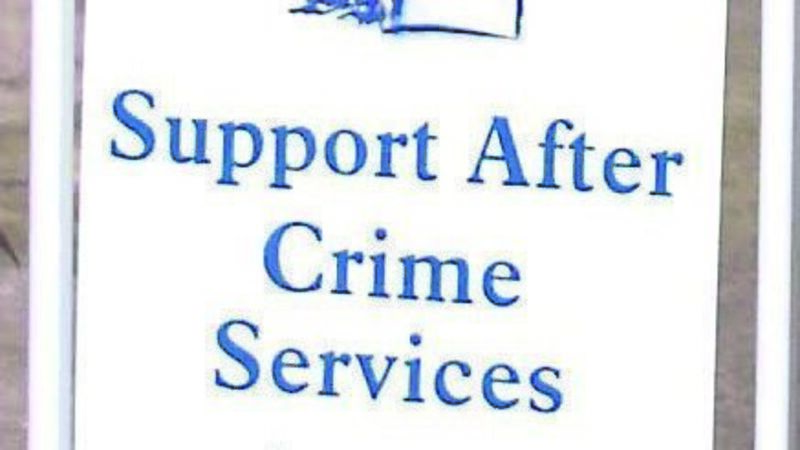Anomalies at Cork charity: 'Serious issues' noted at service assisting crime victims

OVER-REPORTING of client numbers, use of government funding for ineligible travel and subsistence claims, and record-keeping issues were among the ways that the Cork-based Support After Crime (SAC) did not comply with the charities code.
OVER-REPORTING of client numbers, use of government funding for ineligible travel and subsistence claims, and record-keeping issues were among the ways that the Cork-based Support After Crime (SAC) did not comply with the charities code.
The report was provided to The Echo on foot of a Freedom of Information request, after a spokesperson for the Department of Justice (DOJ) said that it had identified “particularly serious issues”.
A lack of proper record keeping at SAC had made it impossible to verify how many victims the charity helped, and whether or not travel expenses were claimed for client services. There was a lack of documentation to back up claims, so that €14,000 of DOJ money was paid out for ineligible claims.
The independent review, conducted by KOSI, said that the problems were largely organisational, with a section related to gifts given to staff members stating: “KOSI has no reason to believe there is anything awry, however, the system is not fit for purpose.”
It comes as the Cork service, which has been helping victims of crime for 17 years, made an announcement at the end of 2023 that it would be forced to close due to government funding being pulled.
Audit
A spokesperson for the Department of Justice told The Echo that as a result of issues highlighted during a spot check, they commissioned an independent external audit of SAC.
They explained:
“The audit confirmed and highlighted a number of particularly serious issues around expenditure, governance, record keeping, and service provision. The department subsequently met with the organisation and on foot of those engagements Support After Crime were advised that the department could not continue to fund them, but that monies would be provided to the end of January to allow for an orderly wind-down. The Department is making arrangements to ensure that adequate court accompaniment services are provided in this region by a new service provider as quickly as possible.”
The Corporate Governance, Financial Management and Client Management Records Review conducted in July 2023 and provided to The Echo under the Freedom of Information Act (2001) identified a number of issues.
The independent review by KOSI examined financial entries, books and records, client management records, systems and supporting control and governance processes during the years 2021-2023, with this period extended back to 2017 for specific expenditure items to include travel and subsistence.
While the audit report noted “it is evident that important work is being carried out”, it identified that the organisation is “overly reliant on the Director of Services; has an incomplete case management system; and lacks compliance with the Governance Code for Charities”.
Additionally it found that SAC “has approved and paid travel and subsistence for senior management without adequate supporting documentation or convergence with applicable T&S rates as guided by Department of Public Expenditure and Reform (DPER) Circulars; and lacks the financial and governance capacity and capability to address the issues identified.”
It noted: “Board members are committed individuals with a good knowledge of the victim service area but there is a lack of knowledge in relation to good governance and financial oversight and, as a result there is no effective challenge function at board level with everything effectively run by the Director of Services”.
“SAC is not compliant with the Charities Governance Code and are not likely to become compliant in the near to medium term.
“A number of high risk areas of non-compliance have been identified including a lack of understanding of the obligations of a charity and the role of trustees and senior management within a charity.”
High risk
The charity was marked high risk in the areas of Corporate Governance and Client Management System and Records, and a medium to high risk with regards Financial Management.
There were a number of issues relating to record keeping, with a lack of records making it impossible to verify the number of clients helped by the organisation. The report states that “information provided indicates that SAC has overstated their client numbers for several years”.
It explains: “SAC reported 2,883 referrals in the 2021 Annual Report and 2,839 referrals in the 2022 Annual Report with approximately 1,000 Victim Impact statements reported in each year.
“It is not possible to confirm the accuracy of the reported numbers in the Annual Reports because SAC does not maintain client records to enable the numbers to be verified.
“Analysis of source information indicates that the likely level of clients is circa 275 in 2021, 220 in 2022 and 150 in the 2023 year to date. We further note that the number of victim impact statements in 2021 is circa 72, and 45 in 2022.
“Overall there is considerable divergence between KOSI’s estimated client numbers and SAC reported numbers and there is concern that SAC is not accurately recording their engagements.”
The report later suggested: “The 2,883 (2021) and (2022) 2,839 referral numbers would appear, in the absence of an auditable client record being provided by SAC or an adequate explanation of their reported number, to represent the potential total number of engagements of all manners with the client cohort.
“With annual client numbers estimated to be circa 250, the reported referral figure of 2,800 requires 12 engagements per client.”
They explained that these revised SAC statistics indicate comparatively less value for money when benchmarked against other providers in terms of cost per client.
In a Comparative Analysis chart which benchmarked a sample organisation similar in type and size against SAC, they showed that the cost per client for this sample organisation was €119, whereas SAC’s cost per client was €645.
Travel
Another major issue identified was around travel and subsistence claims, with the report stating that SAC had “approved and paid travel and subsistence for senior management in the absence of supporting documentation or convergence with applicable T&S rates as guided by DPER Circulars”.
It noted that expense claims are scant in detail, and there were no details recorded of the make, model, and engine capacity of the vehicle used in relation to the claims being made.
The review stated:
“There is no explanation for the use of the individuals vehicles rather than public transport — receipts for public transport feature only twice for train journeys to Dublin (a city not under their geographical remit) in the years under review.”
Additionally, “allowance rates have been claimed by staff for both travel and subsistence which are not in convergence with DPER Circular guidance. These amounts were approved for payment by a Director and anomalies were not reported by the Auditor”.
The investigation found no reference to the client case being serviced for journeys where expenses could be claimed, and no indication of the time spent with clients, noting, “5/10 Hr allowances are rarely claimed, in contrast overnight rates are almost always claimed”.
They also found no supporting documentation such as hotel invoices, receipts, booking confirmations or personal debit/credit card extracts in relation to the overnight rates being claimed, and that supporting documentation was not available to support all reimbursements such as grocery receipts.
“Ineligible expenditure” was also claimed, with the report stating “on at least two occasions” one staff member, whose name was redacted, “claimed for their car service costs in addition to travel and subsistence”.
KOSI thus could not verify that there were effective controls in place over the processing of claims, that they were calculated correctly or that travel and subsistence claims relate to the necessary provision of client services as individual claims cannot be linked to individual services.
Payments
SAC calculated the amount to be repaid to the DOJ as €6,866.68, but having considered the T&S claims and supporting documentation available, KOSI recalculations estimate the amounts of ineligible T&S claimed as €14,325.39.
Although included within the calculations, there is no supporting documentation to confirm “that amounts claimed for overnights have been incurred or that they relate wholly, exclusively and necessarily in the delivery of service”.
Across the period of review, circa €50k of the €96.69k claimed was without supporting documentation, including €2.6k of overnight expenses without documentation claimed by one staff member.
The number of volunteers was also not documented, the report notes, saying that an annual report by SAC “advises that there were 22 active volunteers, a volunteer register is not maintained so this number could not be verified, it is also at odds to the 40 volunteers referenced on the SAC website”.
Other non-compliances included that there is no Health & Safety Statement visible in the SAC premises, no incidents records maintained or no evidence that Health & Safety Training was completed.
The report also notes “section 5.4 of the grant agreement notes that the grantee shall not distribute any grant monies among its members for personal use any grant monies to personally benefit the officers or employees (current or former) of the grantee, or their relatives or dependents”.
However, SAC Financial Policy and Procedure notes that “gifts/tokens of appreciation may, with prior approval of the Board of Directors, be made by this organisation to the Board of Directors, volunteers, staff or other person”.
'Not fit for purpose'
After a large redacted section, the report states: “On the face of it SAC contravene section 5.4 of the grant agreement, however, there is argument that these amounts were serviced largely through donations received and not Department funds,” it explained, noting that the investigators did not suspect anything “awry,” but that “the system is not fit for purpose”.
There is no maximum term for Directors imposed in the SAC Constitution, though maximum terms of nine years are in line with the Charities Governance Code, which would require one of the three Directors to retire from the Board.
KOSI also stated that from meeting with the Board members, though they are devoted to the cause, they have little knowledge of governance or internal controls and compliance with the Charities Code is left to management, adding “there is no effective challenge or oversight function at Board level, SAC is dominated by the Director of Services”.
The report also noted that though DOJ funding makes up 96% of SAC’s total income, they have not acknowledged the reliance on DOJ in annual reports, audited financial website or marketing.
This is in contrast to policy which states:
“The Grantee should acknowledge the contribution of the Department of Justice on any statements, and all advertising, publicity literature materials, reports and events connected with the Project by displaying the logo of the Department of Justice alongside the following wording: ‘This Project is supported by the Department of Justice’.”
Sally Hanlon, the Director of Services of Support After Crime, told The Echo: “I am retired now so not in a position to comment,” but added that the closure of the organisation is a “massive loss” to service users.
The Echo was unable to establish contact with any of the organisation’s board members.







 App?
App?


